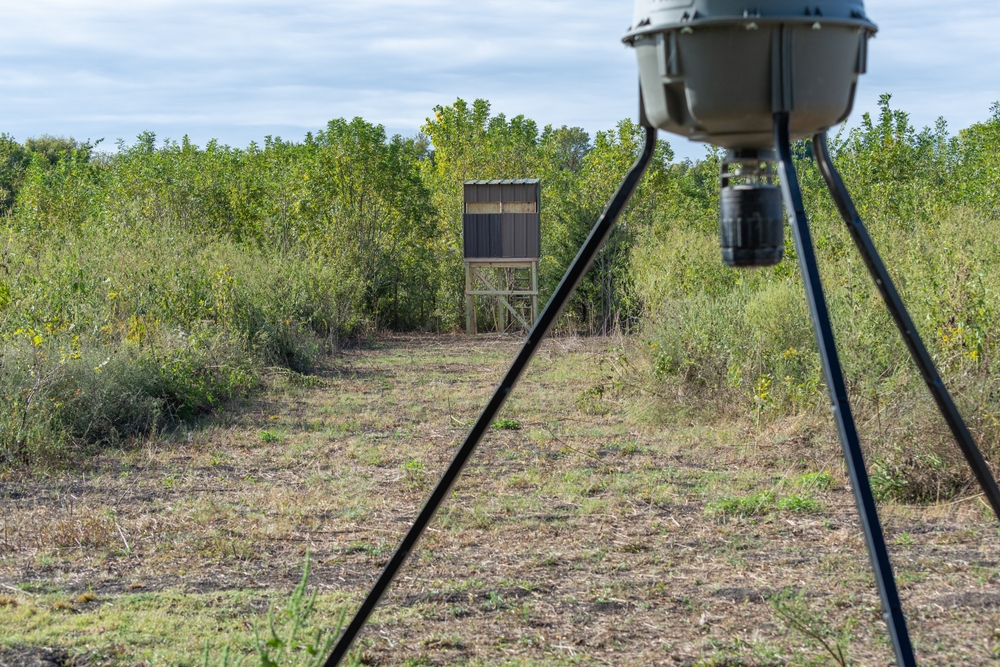What to Look for in a Hunting Lease

What to Look for in a Hunting Lease
Let’s face it, finding places to hunt is becoming harder and harder to do. As a society, we are becoming more developed, and farm land is dissipating. For the remaining land, it is highly competitive to secure landowner permission to hunt their farms so hunters struggle to enjoy their respective sport. A growing trend in recent years is to forego the hustle and bustle of hunting public land and seeking private farm ground to hunt. If you have the funds, you can usually have success by offering a land owner a fair price to use their farm to hunt.
Securing leases can be tough, so we wanted to ask someone who is familiar with the process and can offer some great insight as you look to find hunting ground this offseason. Brodie Wubben is a friend of mine; he also happens to be the owner and founder of Fowlwater Outdoors. Brodie leases hunting ground all around the Des Moines area for waterfowl hunting, deer hunting, and turkey hunting. He is an expert on what to look for when searching for, negotiating and finalizing lease agreements, so he is the perfect information source on this topic. I asked him a few questions, and wanted to share his responses.
What is Fowl Water Outdoors?
Fowl Water Outdoors dedicates itself to creating a more convenient hunting experience for the city-dwelling hunter. We have premium ground surrounding urban areas, making it easier for hunters to visit their land every day, scout and hunt while avoiding a two-hour drive to the country.
I created Fowl Water Outdoors in 2012 to manage and lease land. We partner with landowners to bring hunters access to high quality land in Iowa without the battling for a crowded spot of public hunting ground. To be a hunter takes commitment, passion and time. We know that diehard hunters need to be out on the land. You have to watch how the animals move in the morning and evening. Fowl Water Outdoors offers land close enough to the city to make it possible for you to spend time there but far enough away that it remains a hotbed for game.
6 things everyone should be mindful of when looking for, and signing leases for waterfowl hunting property:
- When you are looking for a spot to lease first you need to think of what kind of game you wish to pursue. More often than not a place that is great for waterfowl hunting may not be the best for deer hunting and vice versa.
- Keep location in mind. Some of the best farms may not look like much but are in a great flyway for feeding migratory birds or a great funnel for deer coming out of the timber.
- Most land that you want to lease should come with a contract that includes anything you might be concerned about. Contracts should cover the basic liabilities, have additional insurance and spell out what is expected from the lease holder as well as the landowner.
- Make sure you’re getting exclusive hunting rights. I have heard of some people who lease land but have to allow certain family members of the landowner to hunt during a set time. If you see this, run far, far away!
- When hunting farm ground, always keep in mind that you cannot hinder farm growth or damage crops when going in or out of the property. If you upset a farmer, the chances of you being able to re-lease are slim-to-none.
- Crop rotation. If you’re a waterfowl hunter, remember that migrating waterfowl will always prefer feeding in a cornfield over a beanfield. The one exception is when the ground is very wet, and then they love the beans!
What is the best way to seek out land available for hunting leases?
Do your research online but offline as well. Talk to hunters, read forums and call the different businesses. Pay attention to how you’re treated. If they don’t treat you right when you’re looking for land, they won’t treat you right when you have problems with the ground or issues with the farmers. There are plenty of leasing businesses in state and out of state so make sure and find and research as many of these businesses as you can. The more property that you can find the better chances of you finding the one that meets your needs. I would love my company to be your choice, but if I am being honest I have to let you know to look at all options. Craigslist is an easy way to see what is available. Facebook is also a powerful tool for searching for local groups or any ground you may want. Many leasing companies will list their properties both on their websites and Facebook pages.
It is also important to have a good discussion with reps at leasing companies. Tell them your wants and needs in a piece of property so they may help assist you in your efforts to find your slice of the pie.
As someone who leases ground, what are the most common problems that come up between you and your landlords?
The number one problem landowners and farmers have with hunters is tearing up or destroying property. Just because you paid a decent amount of money to hunt, does not give you the right to drive into a muddy field and tear it up. That is the quickest way to get kicked off of a lease and never be welcomed back.
Always treat the land like you would your own. If there is trash that has blown in, pick it up. If you see something that looks out of place, let your leasing agent or landowner know, they’ll appreciate the heads up. Everyone who owns land loves having another set of eyes for looking out for their property. Paying for the rights to hunt a piece of property doesn’t give you the right to trash it!
Signing a hunting lease should be an enjoyable experience between lessee and lessor. While it may be a business transaction in essence, make it a friendly one that will last for years to come.
Best of luck out there finding your hunting lease!
September 2021
by Ryan Elder
For Leading News in the Dairy and Cattle Industry Check out the Links below:


